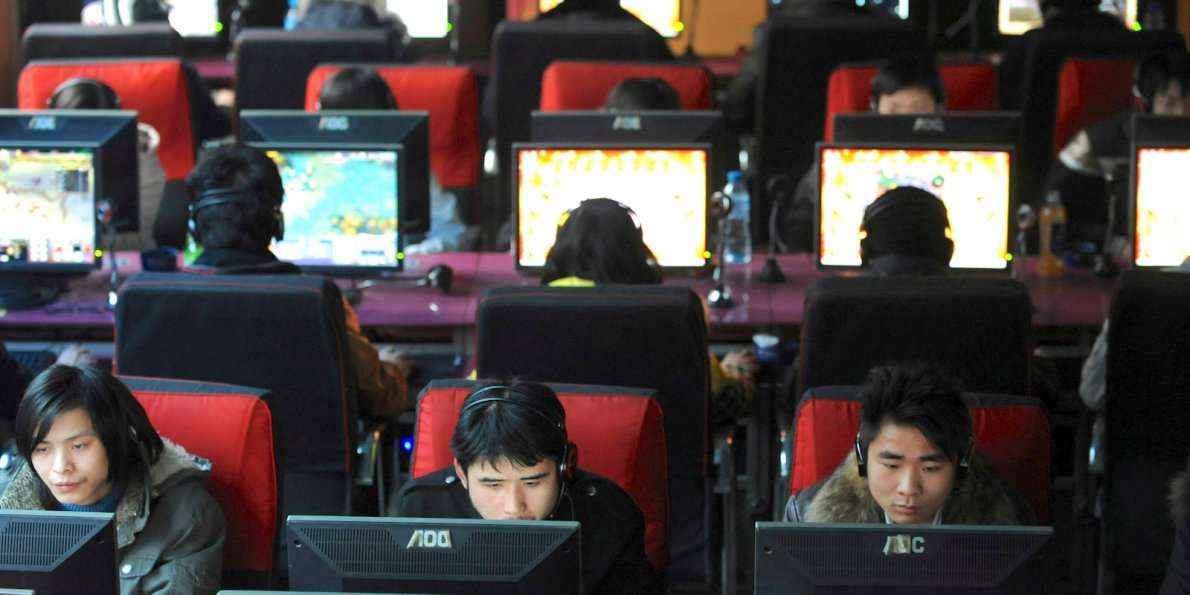The Chinese state is setting up a vast ranking system system that will monitor the behaviour of its enormous population, and rank them all based on their "social credit." The "social credit system," first announced in 2014, aims to reinforce the idea that "keeping trust is glorious and breaking trust is disgraceful,"Â according to a government document. The program is due to be fully operational by 2020, but is being piloted for millions of people already. The scheme is mandatory. At the moment the system is piecemeal â some are run by city councils, others are scored by private tech platforms which hold personal data. Like private credit scores, a person's social score can move up and down depending on their behaviour. The exact methodology is a secret â but examples infractions include bad driving, smoking in non-smoking zones, buying too many video games and posting fake news online. View As: One Page Slides
1. Banning you from flying or getting the train. China has already started punishing people by restricting their travel. Nine million people with low scores have been blocked from buying tickets for domestic flights, Channel News Asia reported in March, citing official statistics. They can also clamp down on luxury options â three million people are barred from getting business-class train tickets. The eventual system will punish bad passengers specifically. Potential misdeeds include trying to ride with no ticket, loitering in front of boarding gates, or smoking in no-smoking areas.
2. Throttling your internet speeds. This is according to Rachel Botsman, an author who published part of her book on tech security on Wired last year. The exact mechanics aren't clear yet. According to Foreign Policy, credit systems monitor whether people pay bills on time, much like financial credit trackers â but also ascribe a moral dimension. Other mooted punishable offences include spending too long playing video games, wasting money on frivolous purchases and posting on social media. Spreading fake news, specifically about terrorist attacks or airport security, will also be punishable offences.
3. Banning you (or your kids!) from the best schools. 17 people who refused to carry out military service last year were barred from enrolling in higher education, applying for high school, or continuing their studies, Beijing News reported. Citizens with low social credit would also be prohibited from enrolling their children at high-paying private schools, Botsman said. It's not clear whether this particular policy has been put into action yet.
4. Stopping you getting the best jobs. "Trust-breaking" individuals would also be banned from doing management jobs in state-owned firms and big banks. Some crimes, like fraud an embezzlement, would also have a big effect on social credit, Botsman reported.
5. Keeping you out of the best hotels. People who refused military service were also banned from some holidays and hotels â showing that vacation plans are fair game too. The regime rewards people here as well as punishing them. People with good scores can speeding up travel applications to places like Europe, Botsman said. An unidentified woman in Beijing also told the BBC in 2015 that she was able to book a hotel without having to pay a cash deposit because she had a good score.
6. Being publicly named as a bad citizen. Naming and shaming is another tactic available. A a 2016 government notice encourages companies to consult the blacklist before hiring people or giving them contracts. However, people will be notified by the courts before they are added to the list, and are allowed to appeal against the decision within ten days of receiving the notification. It's not clear when the list will start to be implemented.
A prototype blacklist already exists, and has been used to punish people. The scrolling list on the left shows individual's names alongside partially redacted ID numbers, while the one on the right shows company names. Li Xiaolin, a lawyer who was placed on the list in 2015, found himself unable to purchase plane tickets home while on a work trip, Human Rights Watch reported. He also couldn't apply for credit cards. Source: Chinese Supreme People's Court
There is also a list for good citizens â that will reportedly get you more matches on dating websites. The BBC said that Baihe, China's biggest dating site, is boosting the profiles of good citizens.
They can also get discounts on energy bills, rent things without deposits, and get better interest rates at banks. These perks were available to people in Rongcheng, eastern China, whose city council rolled out a social credit system for its citizens and was profiled by Foreign Policy.

DifferentThrows on April 8th, 2018 at 12:16 UTC »
“First we worried about losing points, now we just have gotten used to it”.
The banality of evil.
monodescarado on April 8th, 2018 at 12:03 UTC »
One of the most scary things about Zhima Credit (which isn’t mentioned in this article) is the fact that your credit will be tied to that of the people you know through social media. If you’re a bad citizen, it will drag the score down of those around you including your loved ones. If I say something bad about the government on social media, I will be affecting my wife, my colleagues, their families.... I will get deleted (probably not by my wife). This, in turn, forces a very scary form of peer pressure and fear of ostracisation.
Pondy1103 on April 8th, 2018 at 11:47 UTC »
Someone is going to make a lot of money from a “social credit” protection racket.